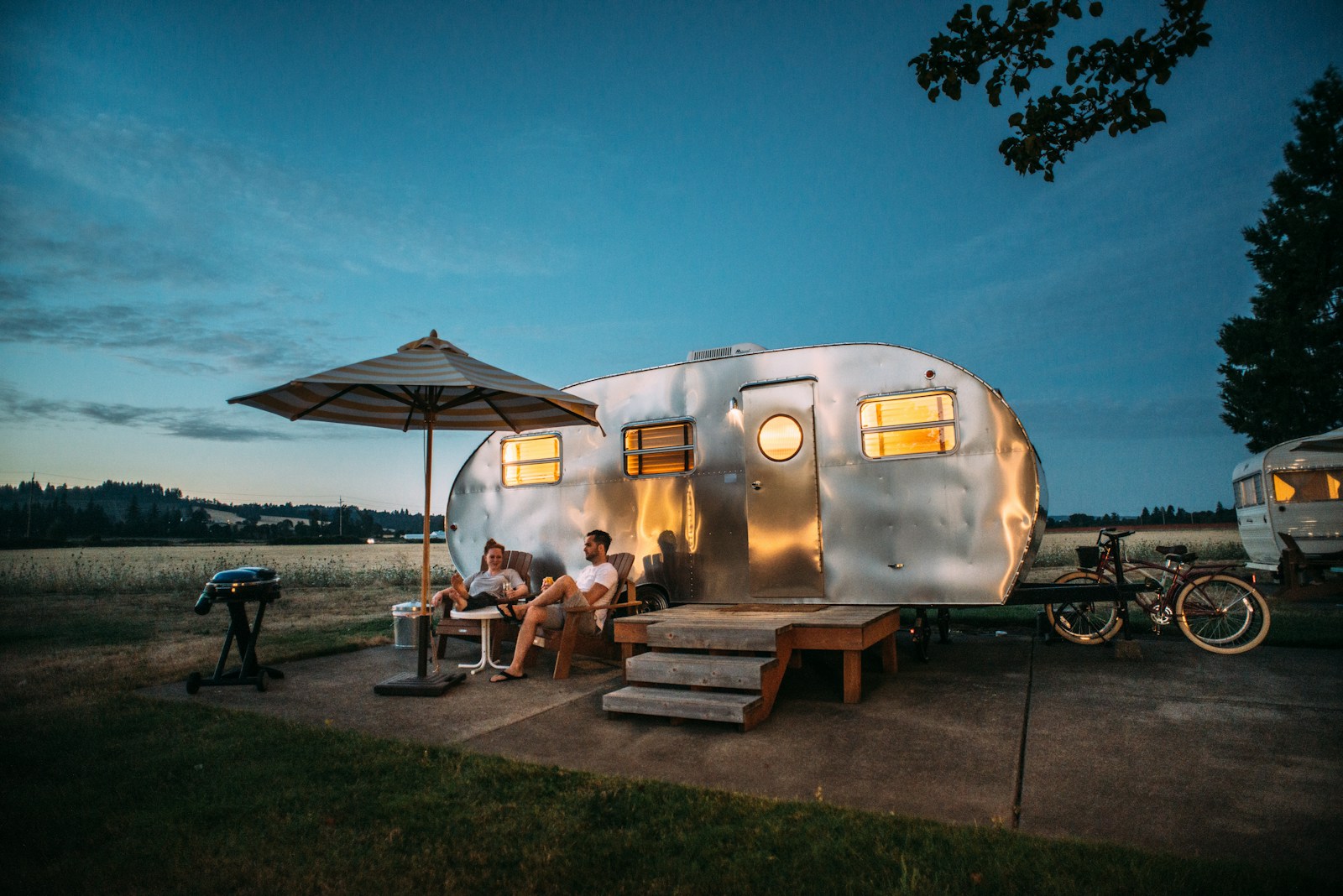How much is a trailer, truly? Dreaming of a new adventure or needing a reliable way to transport goods? Trailers are the unsung heroes of the road—a versatile solution for a variety of needs.
Whether you’re looking for cargo trailers, utility trailers, or even a travel trailer, understanding the cost implications is crucial. This guide breaks down everything you need to know about trailer cost, helping you make informed decisions that suit your budget and needs
Types of Trailers and Their Costs
When it comes to trailers, one size doesn’t fit all. Each type serves a unique purpose, and their prices reflect that versatility. Let’s explore the different kinds of trailers and what you might expect to pay.
Gooseneck trailers are specialty trailers known for their ability to carry heavy loads. They often come equipped with additional functionalities such as spare tires and fold-up ramps.
The average cost of gooseneck trailers can vary, but their unique features and advantages make them a valuable investment for those needing to transport large and heavy items.
Cargo Trailers
Cargo trailers are a popular choice for transporting goods safely and securely. They can range vastly in price depending on their size and features.
- Small Cargo Trailers (4-6 feet) tend to cost between $1,000 to $3,000. They are ideal for those who need to transport small loads.
- Medium Cargo Trailers (7-10 feet) typically range from $2,000 to $5,000, offering more space for larger items or multiple smaller items.
- Large Cargo Trailers (11-14 feet) are priced between $3,000 to $7,000, suitable for more substantial cargo needs.
- Extra-Large Cargo Trailers (15-20 feet) can cost $5,000 to $10,000, catering to very large loads or specialized transport needs.
These trailers provide flexibility for a myriad of transportation tasks, from moving furniture to carrying equipment. The price generally increases with additional features like enhanced suspension or weatherproofing.
Utility Trailers
A utility trailer is multipurpose and can handle a wide range of tasks, from landscaping to hauling building materials. Their costs vary based on size and utility.
- Small Utility Trailers (4-6 feet) are the most affordable, costing between $500 and $1,500, perfect for light-duty jobs.
- Medium Utility Trailers (7-10 feet) fall in the $1,000 to $3,000 range, offering more capacity for diverse tasks.
- Large Utility Trailers (11-14 feet) are priced from $2,000 to $4,000, ideal for heavier hauling jobs.
- Extra-Large Utility Trailers (15-20 feet) can set you back $3,000 to $5,000, suited for professional or commercial use.
Utility trailers are favored for their adaptability and ability to handle a variety of cargo types, making them a valuable addition to any toolkit.
Truck Trailers
Truck trailers are a significant investment, designed for commercial or heavy-duty use. They vary widely in size and price. Fifth wheel hitches, known for their unique height and weight capacity, are often used with pickup trucks and heavy-duty trailers, and their purchase and installation can add to the overall cost.
- Small Truck Trailers (10-20 feet) range from $5,000 to $15,000, perfect for smaller commercial tasks.
- Medium Truck Trailers (21-30 feet) cost between $10,000 to $25,000, balancing capacity and cost.
- Large Truck Trailers (31-40 feet) are priced at $15,000 to $35,000, suitable for large-scale transport needs.
- Extra-Large Truck Trailers (41-50 feet) can reach up to $50,000, equipped for major commercial transportation.
These trailers are essential for businesses that need to transport large quantities of goods efficiently. The cost reflects their size, durability, and capacity.

Trailer Components and Their Costs
Beyond the basic trailer itself, additional components can add to the overall cost. These elements are crucial for functionality and safety.
Trailer Hitch
A trailer hitch is essential for towing any trailer securely. Prices vary based on type and quality.
- Basic Trailer Hitches cost between $100 to $300, suitable for light-duty towing.
- Mid-Range Trailer Hitches can set you back $300 to $600, offering more durability and features.
- High-End Trailer Hitches reach up to $1,000, designed for heavy-duty towing needs.
Choosing the right hitch is vital for safety and efficiency. It’s an investment that pays off in the long run, ensuring peace of mind during transport.
Trailer Tires and Lights
Tires and lights are often overlooked but critical components of any trailer.
- Trailer Tires can cost between $50 to $200 per tire, depending on size and quality. Proper tires are essential for safety and smooth towing.
- Trailer Lights range from $20 to $100, ensuring visibility and legality on the road.
Investing in quality tires and lights is non-negotiable as they play a central role in safety and compliance with road regulations.

Trailer Pricing Factors
Several factors can influence the cost of trailers, from the brand to additional features.
Brand and Manufacturer
The brand and manufacturer significantly impact trailer prices. Well-known brands are synonymous with quality and durability.
- High-Quality Brands like Haulmark, Wells Cargo, and Load Trail often command higher prices due to their reputation for producing high quality trailers that are reliable and durable.
- Lesser-known brands might offer cheaper alternatives but may compromise on quality.
When purchasing a trailer, consider the brand and the reputation it carries. It’s often worth paying a premium for a brand you trust.
Customization and Additional Features
Customization allows you to tailor a trailer to your specific needs, but it comes at a cost. Investing in a high quality trailer can enhance its value and functionality, making it a worthwhile consideration.
- Enclosed Trailers with insulation and climate control can significantly drive up the price.
- Utility Trailers with ramps and tie-downs offer enhanced functionality.
- Boat Trailers with brakes and suspension ensure safety and stability, but at an extra cost.
Weigh the benefits of customization against the additional cost to determine what’s necessary for your use case.

Trailer Maintenance and Repair Costs
Ownership costs don’t stop at the purchase price. Maintenance and repairs are ongoing expenses.
Fuel Costs and Repairs
Fuel and repairs are variable costs that depend on the trailer’s usage and condition.
- Fuel Costs fluctuate based on the trailer’s size and the distances traveled.
- Repairs can range from $100 to $1,000, reflecting the repair’s complexity and the trailer’s condition.
Routine maintenance can mitigate repair costs, keeping your trailer in road-worthy condition.
Insurance
Insurance is an essential consideration, providing protection and peace of mind.
- Insurance Costs for trailers typically range from $100 to $500 annually.
- Rates depend on the trailer’s value, type, and usage.
Shop around to find the best insurance policy for your needs, balancing coverage and cost.
Trailer Financing, Renting, and Buying Tips
Purchasing a trailer is a significant investment, and understanding your options can help you make the best decision for your needs and budget. Whether you’re considering financing, renting, or buying, each option has its own set of benefits and considerations.

Trailer Financing and Buying Tips
Purchasing a trailer is a significant investment. Financing options can ease the burden, and a few tips can help you make smart choices.
Financing Options
Finance options such as loans or leases can make buying a trailer more manageable.
- Loans and Leases have varying terms depending on the lender and your credit score.
- Consider interest rates and repayment terms carefully.
Understand your financing options to ensure the purchase fits your financial situation.
Renting a Trailer
Renting a trailer can be a cost-effective solution for those who need a trailer for a short period or occasional use. Rental companies offer a variety of options, including cargo trailers, utility trailers, and enclosed trailers, catering to different needs and budgets.
When renting a trailer, consider the following factors:
- Trailer Size and Type: Ensure the trailer you choose is suitable for your needs. Whether you need a small utility trailer for a quick job or a larger enclosed trailer for more substantial cargo, selecting the right size and type is crucial.
- Rental Duration: Determine how long you’ll need the trailer. Rental companies typically offer daily, weekly, and monthly rates, so choose a rental period that aligns with your project timeline.
- Rental Cost: Compare prices among different rental companies. Be mindful of any additional fees or charges, such as insurance or mileage fees, which can add to the overall cost.
- Trailer Condition: Inspect the trailer before renting it. Ensure it’s in good condition, with no visible damage or wear that could affect its performance. A well-maintained trailer ensures a safer and more reliable towing experience.
Renting a trailer provides flexibility and can be a practical choice for those who don’t require a trailer on a regular basis.
Buying a New vs. Used Trailer
When it comes to purchasing a trailer, you have the option to buy new or used. Each choice has its own set of advantages and disadvantages, and understanding these can help you make an informed decision.
Pros and Cons of New Trailers
Pros:
- Manufacturer’s Warranty: New trailers come with a warranty, offering peace of mind and protection against defects. This can save you money on repairs and maintenance in the early years of ownership.
- Latest Technology and Safety Features: New trailers are equipped with the latest advancements in technology and safety, ensuring a secure and efficient towing experience.
- High-Quality Materials: New trailers are built with high-quality materials, enhancing their durability and longevity. This means fewer repairs and a longer lifespan.
- Customization: When buying new, you have the option to customize the trailer to meet your specific needs and preferences, from layout to additional features.
Cons:
- Higher Cost: New trailers are generally more expensive than used trailers. The initial purchase price can be a significant investment.
- Depreciation: New trailers depreciate quickly, losing value as soon as they’re driven off the lot. This can be a consideration if you plan to sell the trailer in the future.
Assessing Your Specific Requirements
Defining your needs is the first step in purchasing the right trailer. Investing in a new trailer allows you to select models that suit your specific requirements, ensuring you get the features you need while being aware of potential costs.
- Consider the Cargo you plan to transport, noting size, weight, and frequency.
- Evaluate Features like towing capacity and required specifications.
Knowing your requirements helps you choose a trailer that meets your needs without overspending.
Setting a Realistic Budget
A well-planned budget prevents overspending and future financial strain.
- Include Additional Costs like maintenance, repairs, and insurance in your budget.
- Set Limits based on your financial capabilities and needs.
Budgeting ensures you select a trailer within your means, avoiding unnecessary financial stress.

Key Takeaways and Next Steps | How Much Is A Trailer?
Trailers are an invaluable asset, whether for personal or business use. Understanding the costs associated with different types of trailers helps you make informed decisions.
From cargo trailers to insurance, each aspect of trailer ownership comes with its price tag. Evaluating these costs alongside your specific needs ensures you choose a trailer that meets your requirements without breaking the bank.
Ready to buy a trailer? Assess your needs, set a budget, and explore financing options. Armed with this guide, you’re prepared to make a confident purchase that aligns with your goals. Happy trailering!
Resources
For further information and assistance on trailer purchases, maintenance, and financing, the following resources may prove invaluable:
- National Association of Trailer Manufacturers (NATM): Provides insights into industry standards and certified trailer manufacturers.
- Trailer Life Magazine: Features reviews, tips, and advice for trailer owners and enthusiasts.
- Go RVing: A resource for RV and trailer buyers with road trip ideas, comparisons, and buying guides.
- Consumer Reports on Trailers: Offers independent reviews and advice on choosing the right trailer for your needs.
- Trailer Parts and Accessories: A comprehensive source for purchasing trailer components, ensuring your trailer is equipped and operational.
- Federal Motor Carrier Safety Administration (FMCSA): Provides regulations and guidelines for commercial trailer carriers, invaluable for business use.
- American Automobile Association (AAA): Offers roadside assistance and towing consultation, which is beneficial when traveling with a trailer.
These resources provide a broader understanding and support for enhancing your trailer experience, from purchase to maintenance and usage.



